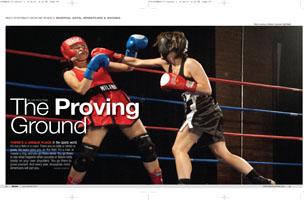
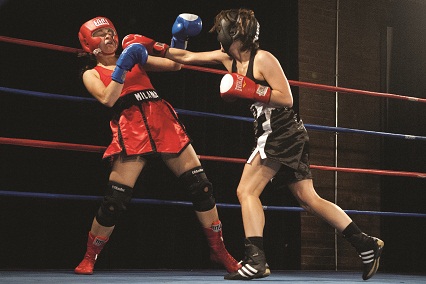 |
| Photo courtesy of Atlanta Corporate Fight Night |
There’s a unique place in the sports world. It’s not a field or a court. There are no balls or sticks or goals. No team joins you on the field. It’s a mat, or maybe a ring, and you go there alone. You go there to see what happens when success or failure rests totally on your own shoulders. You go there to prove yourself. And every year, thousands more Americans will join you.
The sports of marital arts, boxing and wrestling have so many distinct and unique categories, histories and traditions, it would be impossible to detail each one in a single article, even a book. But all three sport categories have one thing in common: individual, hand-to-hand (or foot-to-foot, body-to-body) combat.
Wrestling
The sport
Often called the world’s oldest sport, wrestling has deep roots in cultures across the world, and American communities are no exception. USA Wrestling, the sport’s national governing body (NGB), serves more than 160,000 members. The organization is just one of several organizations that oversees wrestling events, along with the Amateur Athletic Union (AAU) and various professional and amateur wrestling organizations and associations.
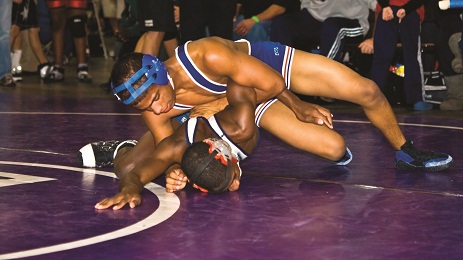 |
| Susan Leggett/Dreamstime.com |
Unique forms of wrestling grew up alongside various cultures, but the most ubiquitous forms in America are freestyle, Greco-Roman and folkstyle. Olympians wrestle freestyle and Greco-Roman, while American high schools and colleges focus on folkstyle, also called collegiate, wrestling. Each style has unique strategies and rules, and young wrestlers often wrestle across styles to maintain a strong foundation in all areas of their sport.
The events
The Middle Atlantic Wrestling Association (MAWA), an AAU Wrestling Club, organizes competitions for more than 11,000 high school athletes and two of the organization’s largest events take place in Salisbury, Maryland. Just two to three hours from Baltimore, Washington DC, Philadelphia and Norfolk, Salisbury offers proximity to a huge percentage of America’s population, along with some remarkable sports facilities.
“The MAWA filters into four regions, and we host the South Region Tournament, which brings in an average of over 1,200 wrestlers in April. Then three weeks later, when all the regionals are finished, the MAWA comes back to Salisbury for its Eastern Nationals, a tournament of more than 1,500 athletes,” says Kate Roth, sports marketer, Wicomico County Tourism. “Both events are held at the Wicomico Youth and Civic Center, where we can fit all of the mats on the main floor, with seats of 6,000 spectators above. Everyone has an excellent view, and that’s a big reason the event is so successful.”
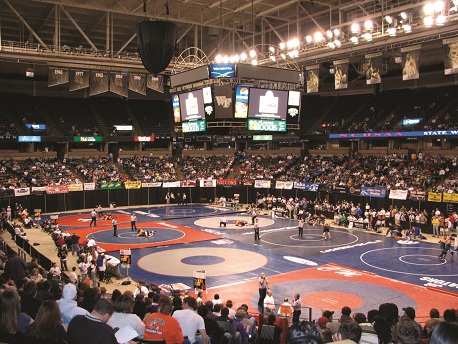 |
| Winston-Salem Entertainment-Sports Complex and Visit Winston-Salem |
Wrestling is known as a sport with deep traditions, often passed from parent to child, and sometimes that’s also how wrestling events come to life.
Ed Gutierrez is the director of the Rocky Mountain Nationals, a series of wrestling tournament billed as the “biggest series in the world.”
“I used to wrestle, and when my sons started wrestling, we’d take them to different events locally. As they got better, we kept trying to get them the best competition, but we found we had to go to places like California and Oklahoma to participate,” says Gutierrez. “I thought, I could probably tackle something like that. It was probably good timing, a little luck and maybe a little arrogance, who knows, but we launched our the first tournament, and it was a hit.”
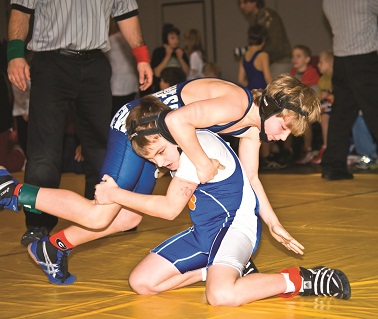 |
| Susan Leggett/Dreamstime.com |
That was 13 years ago, and 1,800 kids attended the very first event. Soon they started getting requests to bring their events to nearby states. Today, the requests come from states that aren’t nearby at all. Rocky Mountain Nationals, now run by the entire Gutierrez family, including those wrestling sons who started it all, is considering starting new competitions in states as far away as Maryland, home of a major sponsor, Tiffen Mats Inc.
When looking for a location, Gutierrez and family take partnerships very seriously.
“Sports commissions don’t always have to come in and entice you with money,” says Gutierrez. “The ones that are really active, that take a lot of our to-do list with things like travel arrangements, they help us the most.”
Martial Arts
The sport
An extremely broad term that can be applied to a vast span of combative sports, martial arts is often associated with Asian traditions like karate, kung fu, judo and jiu-jitsu, although there are actually hundreds of schools of marital arts that originate in countries and cultures all across the world.
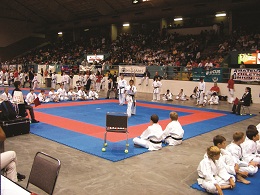 |
| Winston-Salem Entertainment-Sports Complex and Visit Winston-Salem |
USA Karate and USA Judo are the NGBs for the only two Olympic marital arts. Judo also has a unique organization, the Blind Judo Foundation, that promotes the sport for blind and visually impaired athletes, encouraging these athletes and the organizations that serve them to take advantage of the physical, psychological, emotional and productive benefits of Judo. Traditional martial arts in general are known to offer a range of benefits for all participants, earning dedicated followings of each tradition.
A newer type of martial arts, mixed martial arts (MMA), is also amassing an enormous following.
MMA fighters employ a variety of martial arts styles and tactics to compete, drawing from many ancient traditions, but the sport of MMA itself is relatively new, in many cases unregulated and in some states even illegal. MMA has no official governing body and no official sanctioning, although the Association of Boxing Commission adopted its “Unified Rules of Mixed Marital Arts” in 2009.
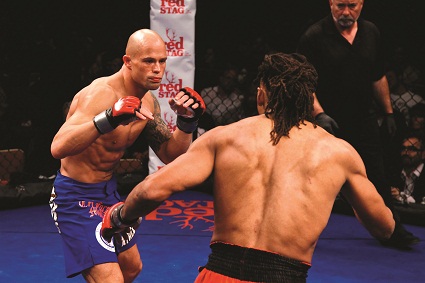 |
| Jerry Coli/Dreamstime.com |
“The draw of MMA is that a regular person can become a champion,” says Gutierrez, whose organization is also launching a new MMA exhibition for adult athletes. “There are guys whose names I know who I might never have known anything about if it weren’t for MMA.”
As MMA becomes more popular, its spectators and hopeful athletes demand more chances to compete and to check out the fierce sport’s spectacle. In the states where MMA is legal, competitions are multiplying rapidly.
The Events
“We have a local MMA promoter in Odessa who runs a company called 24/7 Entertainment, and he’s done a couple of MMA bouts in town, as well as all over West Texas,” says Jeff Meyers, sports sales specialist, Odessa Convention and Visitors Bureau. “Our Far West Event Center is a great home for those events.”
The 33,000 square-foot Far West Event Center offers a key attribute necessary for combative sports events: open space. The typical setup involves mats or a ring surrounded by seating, and the ideal space is one that provides unobstructed views for all spectators.
Thanks to their growing popularity, martial arts and combative sports in general sometimes pop up in places better known for vastly different attractions.
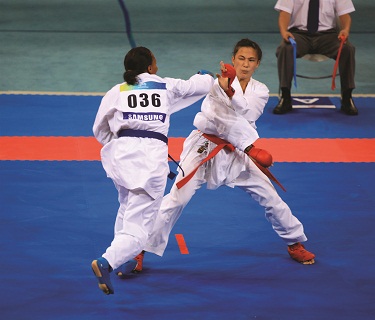 |
| Eagleflying/Dreamstime.com |
“We fall into a certain niche, your not-so-typical leisure visitor,” says Marcheta Keefer, director of marketing and communications, Visit Winston-Salem. “If you seek out Winston-Salem, you’re usually someone who’s into the arts, culture or history. Winston-Salem is also a popular destination for people traveling between the North Carolina coast and our mountains in Asheville.”
In some cases, though, Winston-Salem visitors are coming for a fight. Last fall, the Benton Convention Center hosted the Taekwondo America September Grand National Tournament, while the Winston-Salem Entertainment Sports Complex is contracted to host the North Carolina USA Wrestling Middle School State Championships annually from 2009-2013.
Toronto, another cultural and artistic hub, also happens to be quite famous for its combative sports.
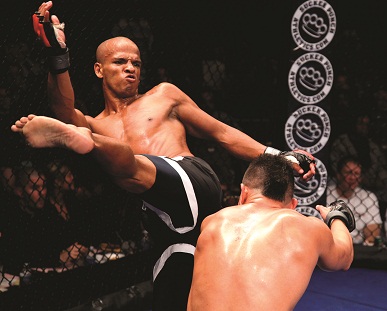 |
| Jerry Coli/Dreamstime.com |
“We have a wide range of different types of combative sports here, but martial arts are particularly popular,” says Robert Kawamoto, director of sales, Greater Toronto Regions, Tourism Toronto. “It has a lot to do with the facilities we have that can host these kinds of events, but there’s also just a lot of access to these sports here. We have a lot of local clubs and a reputation for having some of the best trainers and athletes around. It’s really grassroots based.”
Toronto was home to the 2009 World Wushu Championships at the Ricoh Coliseum, an event that drew 1,500 athletes from 81 countries for an exhibition and competition of the traditional Chinese martial art.
Boxing
The sport
Professional boxing is one of the most storied and legendary sports in American history, in part because of its power, like today’s MMA, to draw a hero out of the unknown. Professional boxing has state-by-state regulation, creating different professional boxing regulations nationwide, while amateur boxing is sanctioned by USA Boxing.
USA Boxing puts the origins of boxing “somewhere in the neighborhood of 4000 BC,” the sport emerging as part of the combat between Greek and Roman empires. It’s surprising that a sport with such an ancient history has only opened up officially to American women within recent years. August 2012 will mark the historic first women’s Olympic boxing competition.
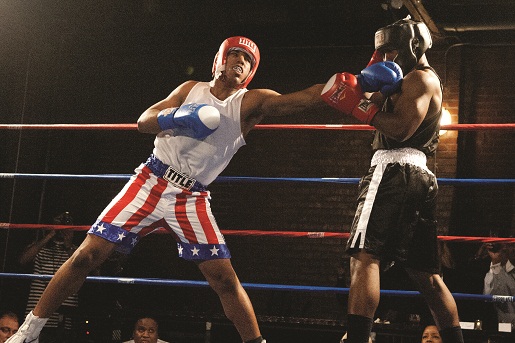 |
| Photo courtesy of Atlanta Corporate Fight Night |
“The hottest new thing in boxing is the girls, and they are smoking,” says Terri Moss, Women’s International Boxing Federation (WIBF) Strawweight World Champion and creator of Atlanta’s Corporate Fight Night. “For the first time ever, women are being allowed in the Olympics, and we’re not passing up this opportunity. All the girls in amateurs are on a mission.”
Youth boxing programs are likely to see an influx of female athletes, too, now that the sport offers Olympic hopes.
Adam Langino, a former amateur boxer, is president of Club 100 Charities in Palm Beach County, Fla.. Club 100 offers a free boxing program for local kids ages 10-18.
“Our boxing program is free and is run in coordination with the Palm Beach County Sheriff's Office,” says Langino. “Our program is successful because of our fantastic volunteer coaches, who all want to improve the lives of the children they coach by increasing their self-confidence, their maturity and providing them a positive and safe outlet for their energy.”
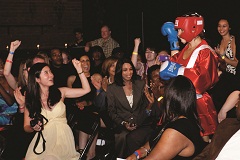 |
| Photo courtesy of Atlanta Corporate Fight Night |
In 2011, Club 100 Charities organized and hosted the Junior Olympics Amateur Boxing Tournament for South Florida at the Jupiter Recreation Center. “The success of our events has come from the work of our volunteers,” says Langino. “At a minimum, whenever planning any major event, we create a committee, select a committee chair, brainstorm a task list, identify the best volunteer to complete each task, and set reasonable deadlines. This process helps us ensure no one is overburdened and everything gets completed.”
Youth boxers will also have the opportunity to carry those lessons into adulthood, thanks to events like the one created by Moss in Atlanta. Corporate Fight Night is a USA Boxing-sanctioned black-tie event that pits amateur boxers against one another in a fight for charity dollars as well as self-discovery.
“If you go outside the U.S., white collar boxing is a phenomenon everywhere,” says Moss, who also runs a women-only boxing training program at Decatur Boxing Club in Georgia. “I realized a lot of people would love to just try a match, even if it’s just once, so I started Corporate Fight Night.”
A “black tie-black eye” event, Corporate Fight Night gives anyone who’s willing the chance to step into the unknown, and into the ring, and see what he—or she—is made of.
“I put together the first show in October 2010, and every show has gotten better and better. Our last show in April sold out,” says Moss.
Untelevised professional boxing matches often sell 500 tickets, says Moss, and they have famous headliners. Corporate Fight Nights often sell the same number of tickets with no famous names and no outrageous marketing.
“Our sponsors aren’t Powerade and Muscle Milk. They’re law firms and insurance brokerage firms. This is the corporate world,” says Moss. “We can bring in big-name celebrities, but I’ve found it doesn’t change the numbers much. Mostly the people who come are the friends and families of the boxers. These boxers have to learn the skill and face the fear of getting into that ring and getting hit. It might be the most intriguing experience they’ll ever have.”

